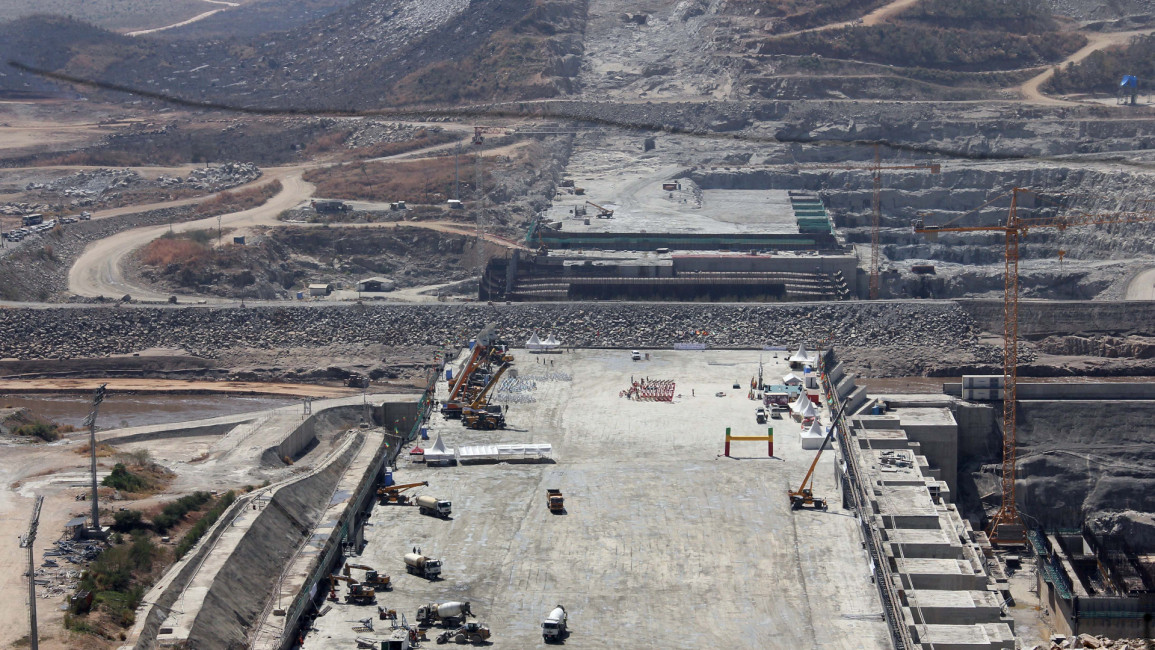
Is Egypt about to die of thirst?
On 23 March, President Abdel Fattah al-Sisi signed a deal in Khartoum with Ethiopia and Sudan over the Ethiopian Renaissance Dam.
However, the move has raised many questions, most notably regarding the extent to which he may have compromised Egypt's rights to water from the River Nile, protected by the agreements of 1929 and 1959, which set Egypt's historical share of the Nile at 55.5 billion cubic metres per year.
In 2010, Hosni Mubarak refused to sign the Cooperative Framework Agreement for the Nile Basin, known as the Entebbe Agreement, expressing three main reservations.
One of these was the agreement's omission - in Article 14B on water security - of the principle of acquired Nile water rights. The treaty neither upheld nor denied the principle; it simply omitted it, which means, according to some legal interpretations, that it would not abolish historic rights.
A matter of interpretation
Nevertheless, Mubarak clung to the principle mainly because Ethiopia does not recognise the accords related to Egypt's historic rights in the Nile, and instead champions another loose principle, namely, the equitable and reasonable use of the Nile.
This principle is stipulated in the United Nations Convention on the Law of the Non-Navigational Uses of International Watercourses of 1997. However, this principle could cause disputes regarding its implementation among riparian states, in this case, between Ethiopia as an upstream country and Egypt and Sudan as downstream countries.
Interestingly, the Renaissance Dam document that Sisi has now signed is based on this principle of equitable and reasonable use. The document quotes Articles 4 and 6 of the UN Convention, where Article 6 Paragraph 3 states: "utilisation of an international watercourse in an equitable and reasonable manner... requires taking into account all relevant factors and circumstances", including the social and economic needs of the watercourse states concerned and the population dependent on the watercourse in each watercourse state.
| The Blue Nile, which originates in Ethiopia, supplies Egypt with 85 percent of its water. |
This could create disputes when it comes to implementation.
Indeed, among the most controversial of these factors is that related to the "existing and potential uses of the watercourse" stated in the Convention.
For instance, a riparian state, intending to implement some development programmes, may want access to a larger share of the watercourse. This would no doubt affect the shares of other riparian states.
Furthermore, this raises questions regarding what should take priority in terms of benefiting from a watercourse, ie: whether the priority should be for existing uses and historical rights, or for potential and future uses.
Or, to put it a different way, Ethiopia could claim it needs a larger share of the Nile for some potential projects, such as irrigation dams; this share, even though Ethiopia may not actually need it given its levels of rainfall, could then reduce Egypt's share.
Another controversial issue could be the contribution of each Nile Basin state to the Nile river system. This criterion favours Ethiopia, through which 1,400 billion cubic metres flow annually.
The Blue Nile, which originates in Ethiopia, supplies Egypt with 85 percent of its water. Another criterion that also favours Ethiopia is the size and the extent of the Nile itself within the territory of each Nile Basin state.
Putting Egypt's water rights at risk?
This means that the declaration of principles' omission of Egypt's acquired rights, replacing them with the principle of equitable and reasonable use as determined by controversial factors, puts Egypt's established rights at risk, and makes them subject to negotiations and Ethiopian interpretations.
This could allow Ethiopia to follow the same approach Israel follows with the Palestinians, imposing de facto policies, especially with regards to the Ethiopian dam project and water rights in general.
Egypt may not be able to seek arbitration of future disputes or resort to the international justice system, because such would require Ethiopia's approval. This is out of the question, and was not mentioned in the agreement just signed in Khartoum - even though the 1997 UN Convention allows disputing watercourse states to resort to such fora.
If a dispute should arise, Egypt will face a stark choice: negotiations, or war.
Nevertheless, President Sisi has done what Mohamed Morsi and Hosni Mubarak could not bring themselves to do.
It seems he wanted an imaginary political triumph before domestic public opinion. Will he now go on to sign the Entebbe Agreement, and thereby claim to have ended the Nile crisis not just with Ethiopia but with all the Nile Basin states?
This is an edited translation from our Arabic edition.
Opinions expressed in this article remain those of the author and do not necessarily represent those of al-Araby al-Jadeed, its editorial board or staff.




